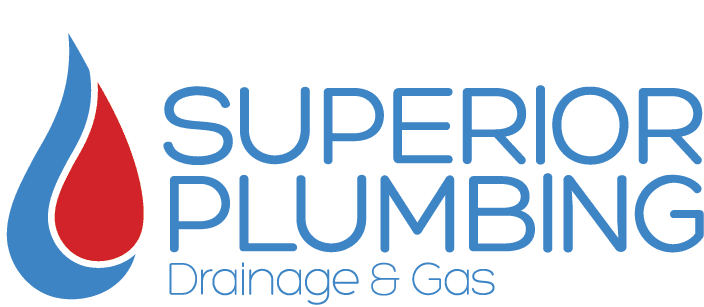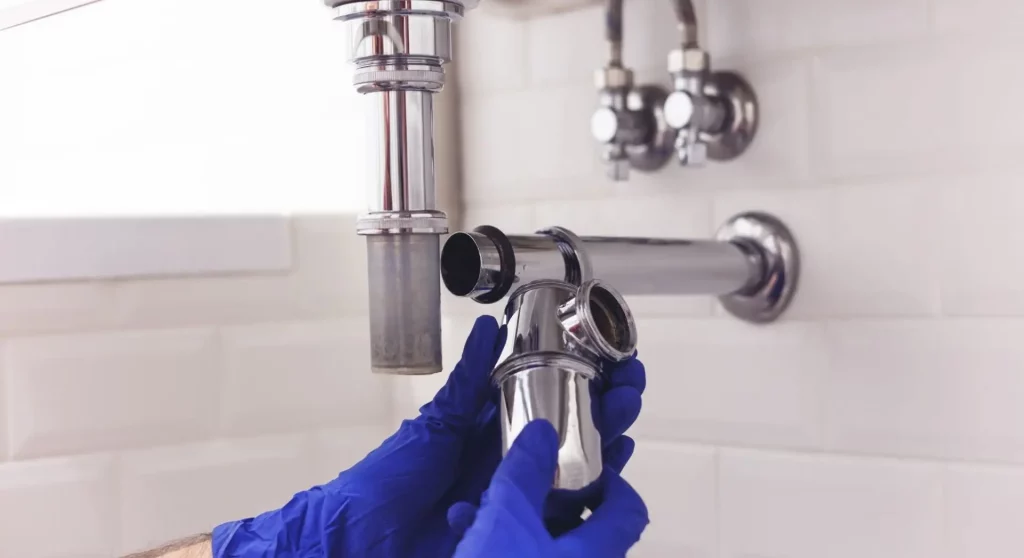Australia is home to diverse water conditions, with many regions experiencing hard water issues. Hard water contains high concentrations of dissolved minerals, primarily calcium and magnesium. While not harmful to human health, hard water can wreak havoc on plumbing systems and household appliances. In this article, we’ll take a look at the impact of hard water and how it affects your plumbing system.
Understanding Hard Water
Hard water is common, particularly in regions relying on groundwater sources. Western Australia often experiences moderate to high water hardness levels. Groundwater picks up minerals as it flows through limestone and other mineral-rich rocks, resulting in hard water. Recognising the signs of hard water and taking proactive steps to mitigate its effects can save you from costly repairs and inefficiencies in your home or business.
How Hard Water Affects Your Plumbing System
- Mineral Buildup and Pipe Blockages: Hard water causes mineral deposits, known as limescale, to accumulate inside pipes. Over time, these deposits reduce the diameter of the pipes, restricting water flow and increasing water pressure in the system. This heightened pressure can strain joints and connections, leading to leaks or bursts. In severe cases, the accumulated limescale can lead to complete blockages, rendering sections of the plumbing system inoperable and requiring expensive professional intervention to resolve.
- Decreased Water Heater Efficiency: Water heaters are particularly vulnerable to hard water. Mineral deposits form on heating elements and the interior surfaces of the heater tank, insulating the elements and forcing the heater to work harder to reach desired temperatures. This increased workload not only raises energy consumption but also accelerates wear and tear on the system, potentially shortening its lifespan. For those in regions with higher energy costs, this can translate to noticeably more expensive utility bills and the inconvenience of frequent repairs or premature replacements.
- Damage to Fixtures and Appliances: Faucets, showerheads, and other fixtures develop white, chalky deposits due to hard water. These deposits can clog the small openings in fixtures, diminishing water pressure and affecting their overall functionality. Over time, the buildup can corrode or degrade the material, leading to costly replacements. Household appliances such as dishwashers and washing machines are also impacted, as mineral buildup can clog internal components like jets and valves. This not only reduces their cleaning efficiency but also increases the likelihood of breakdowns, necessitating more frequent servicing or replacements.
- Corrosion of Plumbing Materials: While limescale can form a protective layer on metal pipes, it can also contribute to galvanic corrosion when different metals are used in the plumbing system. This occurs because hard water’s mineral content facilitates electrochemical reactions between dissimilar metals, accelerating corrosion. Additionally, hard water can degrade rubber seals, gaskets, and other non-metal components in your plumbing system.
- Soap Scum and Cleaning Challenges: Hard water reacts with soap to form soap scum, a sticky residue that clogs drains and adheres to the surfaces of bathtubs, sinks, and tiles. The buildup not only creates aesthetic issues but also contributes to inefficiencies in the plumbing system. Soap scum can accumulate in pipes, gradually restricting water flow and increasing maintenance needs.
Signs of Hard Water in Your Home
Here are the common telltale signs of hard water:
- White, chalky residue on faucets and fixtures
- Frequent clogging of showerheads and faucets
- Reduced water flow and pressure
- Soap and detergent not lathering effectively
- Stiff laundry and spots on dishes after washing
Mitigating the Impacts
- Water Softeners: Installing a water softener is one of the most effective ways to combat hard water. These devices replace calcium and magnesium ions with sodium or potassium, reducing water hardness. While the initial installation cost can be significant, the long-term benefits include extending the lifespan of your plumbing system and appliances, lowering energy bills, and reducing maintenance costs
- Regular Maintenance: Scheduling regular maintenance for your plumbing system is essential to prevent hard water issues from escalating. Professional descaling services can remove mineral deposits from pipes and appliances, restoring their efficiency. Regular checks of your plumbing system help identify early signs of damage or buildup, allowing for timely interventions that can save money and prevent major disruptions.
- Install Water Filters: Point-of-use water filters or whole-house filtration systems can significantly reduce the mineral content in water before it enters your plumbing system. These filters can be useful in areas with moderate to high water hardness. Additionally, some advanced filtration systems combine softening and filtration, offering comprehensive protection against hard water damage while improving water quality for drinking and cooking.
- Choose Hard Water-Friendly Appliances: Many modern appliances are designed to perform better with hard water. Features such as self-cleaning mechanisms, descaling cycles, or compatibility with water-softening agents can help appliances withstand the effects of hard water. When purchasing new appliances, look for models that explicitly state their suitability for use in hard water conditions.
- Professional Plumbing Inspections: Engaging a professional licensed plumber for regular inspections is a proactive way to protect your plumbing system. Professionals can identify hard water-related issues early, such as mineral buildup, leaks, or signs of corrosion, and recommend appropriate solutions.
Contact Superior Plumbing and Gas
For reliable residential and commercial plumbing maintenance, look no further than Superior Plumbing and Gas.
Our experienced team is dedicated to providing fast, efficient, and high-quality service for all your plumbing needs.
Whether it’s routine inspections, preventive maintenance, or emergency repairs, we are here to ensure your plumbing systems are running smoothly.
With a strong focus on customer satisfaction, we work quickly to minimise disruptions to your home or business. Our dependable, professional service will keep your plumbing in top shape. Get in touch today.


